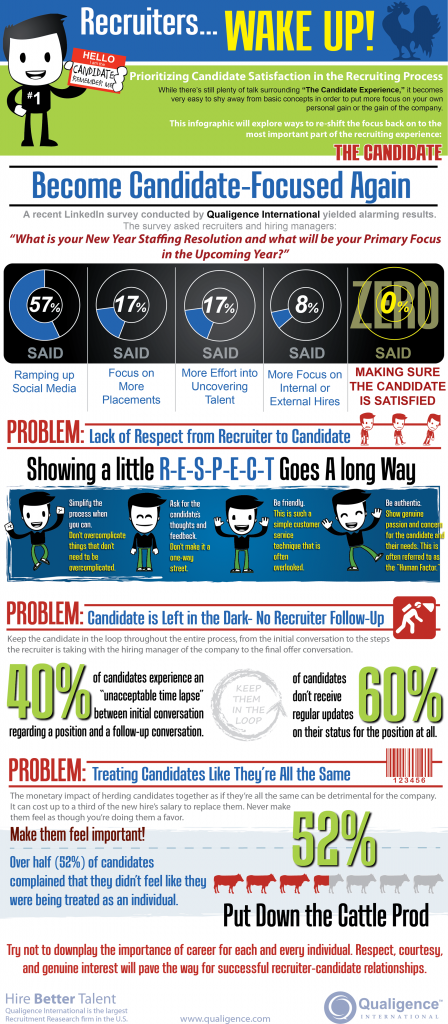 In many markets, job openings are running at record levels. Employers are fishing for talent in a limited pool of candidates. This tight labor market is leading more employers to accept more non-traditional qualifications for candidates with no degree. So you realize you are not alone, sixty percent of employers say they are at least thinking of hiring non-degree candidates this year, up from 40% in 2019, according to a survey of 1,200 employers by the online learning company Pearson. Read the rest of this entry »
In many markets, job openings are running at record levels. Employers are fishing for talent in a limited pool of candidates. This tight labor market is leading more employers to accept more non-traditional qualifications for candidates with no degree. So you realize you are not alone, sixty percent of employers say they are at least thinking of hiring non-degree candidates this year, up from 40% in 2019, according to a survey of 1,200 employers by the online learning company Pearson. Read the rest of this entry »
No Resume, No Degree, No Problem
by Dave NerzText Recruiting: Make it Simple and Repeatable
by Dave Nerz Text recruiting is just another way to connect with top talent. Done effectively, it will create better open rates while making it easy for candidates to respond and connect. If you are going to invest in text recruiting, consider making your process simple, effective and repeatable with text templates. Read the rest of this entry »
Text recruiting is just another way to connect with top talent. Done effectively, it will create better open rates while making it easy for candidates to respond and connect. If you are going to invest in text recruiting, consider making your process simple, effective and repeatable with text templates. Read the rest of this entry »
What a Candidate Can Expect Working With A Recruiter
by Liz Carey Recruitment is a relationship business. Companies are looking for candidates with the right mix of skills and cultural “fit” for their business. Candidates are looking for an opportunity with a company they want to belong to, as well as the right salary, benefits, etc. That’s where recruiters come into play – recruiters are the “matchmaker” between the job and the talent. But just because a recruiter matches a resume with the skills needed in a job requirement, doesn’t mean they are a great recruiter.
Recruitment is a relationship business. Companies are looking for candidates with the right mix of skills and cultural “fit” for their business. Candidates are looking for an opportunity with a company they want to belong to, as well as the right salary, benefits, etc. That’s where recruiters come into play – recruiters are the “matchmaker” between the job and the talent. But just because a recruiter matches a resume with the skills needed in a job requirement, doesn’t mean they are a great recruiter.
Recruiting isn’t a transactional business… at the end of the day, if a client or candidate didn’t have a good experience with you, they won’t come back to you. To be a successful recruiter, you have to build and maintain relationships.
Candidates have a lot of options right now, and they are in control when it comes to the recruiting and hiring process… so you have to make sure you leave a good impression and build a strong relationship with them. Candidates should be able to have their expectations met in the following areas: Read the rest of this entry »
Text Messaging Templates for Recruiters
by Dave Nerz I am from a generation where the phone has long been my favorite contact initiation tool. Over time, I have learned to use email to accomplish what a phone message might have once done. There is no replacement for a live call, but those connections are becoming fewer and more difficult to achieve. If this last period of pandemic has taught me anything, it has taught me to be flexible and to consider options. Texting is an option that must be considered and used when appropriate. Some candidates will prefer texting to phone calls/messages or even to email. Read the rest of this entry »
I am from a generation where the phone has long been my favorite contact initiation tool. Over time, I have learned to use email to accomplish what a phone message might have once done. There is no replacement for a live call, but those connections are becoming fewer and more difficult to achieve. If this last period of pandemic has taught me anything, it has taught me to be flexible and to consider options. Texting is an option that must be considered and used when appropriate. Some candidates will prefer texting to phone calls/messages or even to email. Read the rest of this entry »
For Today’s Recruitment Marketplace: Some Thoughts & Reminders
by Veronica Blatt Today’s guest blogger is Jim Lyons, JD, CPC of LHI Executive Search in the New York City area. LHI is an investigative executive search & research outsourcing firm covering the information technology, capital markets, private equity/venture capital, digital & social media, mobile, cloud, big data, and legal business sectors. Jim has been an NPAworldwide member since 2012 and is currently serving as the chairman-elect of the Board of Directors. Below he discusses the candidate-rich recruitment marketplace we are in.
Today’s guest blogger is Jim Lyons, JD, CPC of LHI Executive Search in the New York City area. LHI is an investigative executive search & research outsourcing firm covering the information technology, capital markets, private equity/venture capital, digital & social media, mobile, cloud, big data, and legal business sectors. Jim has been an NPAworldwide member since 2012 and is currently serving as the chairman-elect of the Board of Directors. Below he discusses the candidate-rich recruitment marketplace we are in.
It should come as no surprise to you that we are in a crazy SUPER CANDIDATE’S MARKETPLACE.
Today’s recruitment marketplace no longer distinguishes between “passive candidates” or “candidates in the market.” Top talent, whatever the source, is the order of the day. Read the rest of this entry »
The 14 Pitfalls We See Most in Recruiting
by Veronica Blatt Today’s blogger is Ryan Winemiller, with TopFunnel, the automated sourcing platform that is enabling talent teams to attract and engage the most qualified candidates with a single click. TopFunnel’s suite of products helps teams unlock their talent pipeline with solutions built for streamlined sourcing, pipeline development, and fully automated scheduling. TopFunnel is an NPAworldwide Endorsed Program.
Today’s blogger is Ryan Winemiller, with TopFunnel, the automated sourcing platform that is enabling talent teams to attract and engage the most qualified candidates with a single click. TopFunnel’s suite of products helps teams unlock their talent pipeline with solutions built for streamlined sourcing, pipeline development, and fully automated scheduling. TopFunnel is an NPAworldwide Endorsed Program.
Pitfall #1: You require a pre-interview test or case study right after you’ve reached out to a potential candidate
Remember, when sourcing candidates via outbound recruiting it’s your job to sell the candidate on the position, not the other way around. If a test or case study is part of your interview process, save it until later on in interview rounds for outbound candidates.
Pitfall #2: Your messages sound inauthentic
While it is essential to paint the available opportunity in good light, you must also remember that this isn’t a sales prospect. Differentiate yourself in a crowded marketplace by being personable, and most importantly authentic. Read the rest of this entry »
Stay Close with Silver Medal Candidates
by Liz Carey When you work on a job order, you probably get a handful of really great candidates among the hundreds of resumes that come in. Ultimately, your client can only pick one to hire. But if you just dump the rest of the candidates once the job order is filled, you may be missing out. As a recruiter, you’re flooded with applications and job orders, but it’s important to make sure those once-top contenders don’t fall through the cracks. Read the rest of this entry »
When you work on a job order, you probably get a handful of really great candidates among the hundreds of resumes that come in. Ultimately, your client can only pick one to hire. But if you just dump the rest of the candidates once the job order is filled, you may be missing out. As a recruiter, you’re flooded with applications and job orders, but it’s important to make sure those once-top contenders don’t fall through the cracks. Read the rest of this entry »
Recruiter Association Insight into Candidate Turn-Downs
by Dave Nerz Hiring is one part buying and one part selling. Sometimes no matter how hard an agency recruiter works to place a candidate, the hiring company can let the recruiter down. Employers need to be reminded it is just as important to sell the company and the company culture as it is to vet the candidate in an interview. This is more true today with a shortage of quality candidates. The best candidates have other opportunities. The employer better be selling as they evaluate.
Hiring is one part buying and one part selling. Sometimes no matter how hard an agency recruiter works to place a candidate, the hiring company can let the recruiter down. Employers need to be reminded it is just as important to sell the company and the company culture as it is to vet the candidate in an interview. This is more true today with a shortage of quality candidates. The best candidates have other opportunities. The employer better be selling as they evaluate.
A study completed by a recruiter association found that candidates who rejected offers accepted a competitive job offer in about 1-in-3 situations and another 1-in-5 accepted a counteroffer. Counteroffers are growing in frequency and aggression as employers realize the difficulty of finding top talent. One respondent to the recruiter association’s survey said, “We hadn’t seen a counteroffer worth accepting in four years. That has changed now.”
Besides money and willingness to make a change, here are some other things that the members of our recruiter association have reported as employer-driven reasons for candidate turn-downs:
- Negativity. Some employers will speak poorly of the company, employees, working conditions, and workload. If candidates sense low morale, they are not going to accept the offer of employment.
- Bad interviewers. Sometimes interviewers like to be “clever” and it just ends up being stupid: the interview that does the “what is your favorite color” question, the “if you could be a rock star” question, the “why are manhole covers round” question. Employers can just send the wrong vibe for dumb reasons. When employers control 80% of the interview time by talking incessantly or when they are unwilling to offer anything that goes off script — that can turn off a quality candidate too.
- Failure to sell. Tell me about why this is a great place to work. Employers expect that candidates come in sold on the company. True, a recruiter can do much to help there, but most candidates want to have that reinforced by the interviewer. Sell, and the candidate might buy.
- Lack of preparation. OK, who has not been to the interview where the interviewer is obviously reading your resume for the first time — or worse yet asks you for a copy “to see if you came prepared.” When the interview starts 45 minutes late, there is a problem. Candidates hold employers to standards just as employers do to candidates. It is no more acceptable for the employer to be late or unprepared than it is for the candidate.
Our recruiter association operates on 6 continents and in more than 28 countries, and by all accounts, the shift from an employer/job-driven market to a candidate-short market is well underway in most locations around the world. Agency recruiters will need to work closely with employer/clients to avoid these things that cause candidate turn-downs.
Independent Recruiters, How About a Little Candidate Love?
by Veronica BlattThere’s been some lively discussion among the NPA ranks this week about the perils of neglecting candidates. While many (most?) recruiters say they work for the client—and I don’t disagree, because that’s who pays the bills—it seems timely to remind independent recruiters not to forget about the candidate. Especially in the candidate-short market recruiters are facing today.
Candidates have options. Lots of options. You’re not “doing them a favor” by helping them take important steps in their career. Independent recruiters and clients who aren’t responding to candidates in a professional, timely manner will lose out to those who do.
Qualigence International, the largest recruitment research firm in the US, recently conducted a survey on what recruiters and hiring managers consider their primary focus in 2013. The most shocking detail? ZERO said “making sure the candidate is satisfied.” Take a look at the other results in the [INFOGRAPHIC] below:
What are YOU doing as an independent recruiter, to show your candidates a little love?
Working with Other Independent Recruiters to Improve Results
by Veronica Blatt Today’s post is courtesy of guest blogger Kimberley Chesney. Kimberley is the owner of Prime Management Group in Canada, with offices in London and Kitchener (Ontario) and Victoria (British Columbia). Kimberley is a long-time volunteer for NPA, currently serving as Chair of the NPA Board of Directors.
Today’s post is courtesy of guest blogger Kimberley Chesney. Kimberley is the owner of Prime Management Group in Canada, with offices in London and Kitchener (Ontario) and Victoria (British Columbia). Kimberley is a long-time volunteer for NPA, currently serving as Chair of the NPA Board of Directors.
Working as independent recruiters can be difficult. We want to produce excellent results for our clients without the normal resources of large, international firms. We know, all too well, that our individual reputation depends on the results we can achieve for our clients. With the advent of social media, we are constantly challenged in differentiating ourselves from our competition.
How are we able to deliver excellent results and earn a respectable fee?
Understanding the complex needs of our clients is key to producing the outcomes that they are expecting from us. Taking the time to meet with our clients (either face-to-face or online) will be essential if we truly want to put ourselves in their shoes.
Working through the process of recruiting, rather than seeing it as a transaction, is very important. Aligning ourselves with other independent recruiters who value the personal nature of our role can be extremely helpful. It is essential to use every tool available in order to produce the results we are expected to deliver.
Often, we focus entirely on the “client” part of the placement and virtually ignore the needs of the candidates we are presenting. If we would only stop and remember that we are in the “people” business and that both parties have special needs of their own. Learning what your candidates are looking for as a package is much more than hearing about their salary expectations. Often there are many other factors which affect the candidate’s desire and ability to say “yes” to an offer and yet we don’t take the time to really learn what is important to them.
If we are fortunate to have other independent recruiters as partners who want to assist us, we can better navigate through this complex business relationship. If they have an existing relationship with the client or candidate, it increases the odds that you will be able to close the placement. They may have some information concerning the client or candidate which provides the basis on which you can close the placement. Imagine the power of knowledge gained in working in a cooperative placement process where your partner helps you with the entire recruitment journey! Imagine if they have access to excellent candidates who provide exactly what your client is looking for. You would be more than happy to share the fee and ensure you are serving your clients so they come back to you over and over again.
Being an independent recruiter can have its advantages, but networking with other recruiters who are like minded provides for excellent scope and results and keeps not only your clients happy, but your pocketbook too!
Image courtesy of digitalart / FreeDigitalPhotos.net

